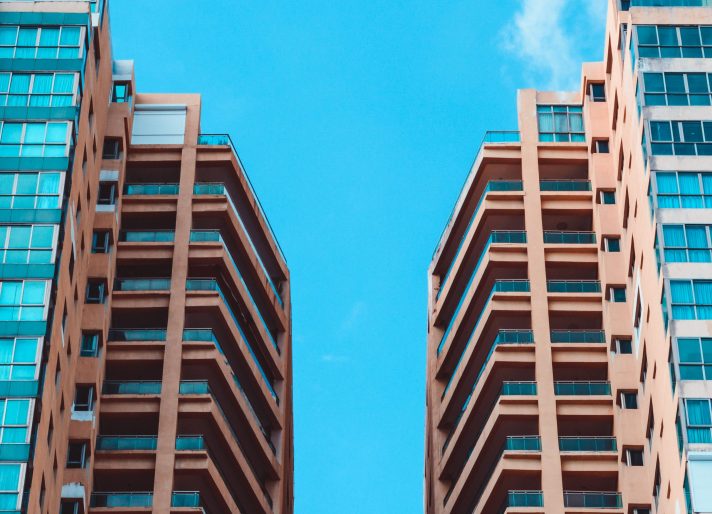The shock of the COVID-19 pandemic has placed facility and property cleaning and maintenance services at the forefront of essential services. Prior to the pandemic, these services had never been in the spotlight, nor were their processes and performance placed under significant scrutiny.
Moving forward in 2021, it has come to light that services related to sanitization and maintenance have been long hiding under the radar of technological innovation. This is likely because the trend of digitization and application development was predominantly focused on the improvement of the business-to-consumer (B2C) customer experience.
Even in business-to-business (B2B) cases, technological improvements concerning cleaning and routine maintenance had been left in the dark.
A forgotten need
It may be because more exciting and lucrative opportunities were available elsewhere in comparison to the perceived mundane process of routine janitorial services.
In addition, because of the minimal focus on technology for these services, cleaning and maintenance companies that attempted to move forward and improve their workflow did so by repurposing readily available scheduling software.
Although this may seem like a very logical step forward, it is far from what is desired by property managers, as simple scheduling only scratches the surface of the complexities involved in managing the cleaning for multi-residential and commercial properties.
Managing cleaning and maintenance
For property managers, overseeing cleaning and maintenance operations is a long and cumbersome process, riddled with inefficiencies.
Property management can involve daily scheduling and monitoring hundreds of thousands to millions of square feet of property. Each of these spaces can be part of multiple properties, with varying sizes and unique functions. Even within individual properties, areas can have specific uses depending on the tenants and building visitors.
For example, in commercial spaces, property managers cater to a diverse range of tenants, where each tenant may have a unique use for each unit. These can range from retail stores to office space and production.
Daily issues faced by property managers
Communication and reporting
Communication and reporting can lead to frustration by both the property managers and the maintenance teams if expectations are misunderstood or not met.
Quite often, the proof of service delivery is forgotten, misplaced, or not provided by the cleaning company. Sometimes, even the completed paper reports or entire clipboards can get misplaced or buried under paperwork, adding to the confusion.
Scheduling
Scheduling alone can be an administrative nightmare for property managers. More often than not, property managers experience scheduling conflicts, no-shows, and last-minute cancellations.
Although some conflicts may arise from inconsistent scheduling by the property managers, the majority can be attributed to scheduling inefficiencies by the maintenance companies themselves.
To make matters worse, companies and personnel can be frustratingly challenging to get a hold of. Even for urgent cases, many property managers experience delays in receiving a response, and often the answers are very short with no context or elaboration.
Compliance and quality control
Another source of aggravation for property managers is the work involved in monitoring compliance and quality control. Problems occur when maintenance companies assign cleaning staff to perform tasks they are not adequately trained for, yielding less than favourable results.
Furthermore, companies may not perform a thorough-enough quality (QC) inspection as per the requirements of the property manager, as they expect the property managers themselves to verify the completed work through their own inspection. This is a highly inefficient process as it involves duplication of tasks assigned to the cleaning company within an already constrained timeframe.
To further emphasize this inefficiency, the process requires the property managers to be on-site for each inspection, often working on weekends or taking overtime hours to accommodate these additional tasks. Property managers already have a multitude of tasks to manage and, as a result, have a limited amount of time they can allocate towards verification of cleaning and maintenance.
This process contributes to a negative feedback loop where neither party takes full accountability for the inspections, resulting in continuous dissatisfaction by tenants within those properties.
Too many inefficiencies
The inefficiencies described above are just a fraction of the challenges faced by property managers on a daily basis.
Therefore, now more than ever, there is a greater need to modernize and digitally transform the inefficient and time-consuming processes which plague the cleaning and maintenance industry. It is time to modernize an industry that has lagged behind for many years.
Moving forward
Fortunately, companies are stepping forward to take on this challenging area of neglected innovation. State-of-the-art technology platforms and professional cleaning service teams are reinventing the process of cleaning and maintenance for property managers, saving them time, aggravation, and, ultimately, money.
Charlotte Gummesson is co-founder of iRestify and strives to modernize antiquated industries to create and drive greater efficiencies. Through the combination of a fully integrated tech platform and professional cleaning and management teams, iRestify has been vastly improving service levels for many of the top brands in North America.









